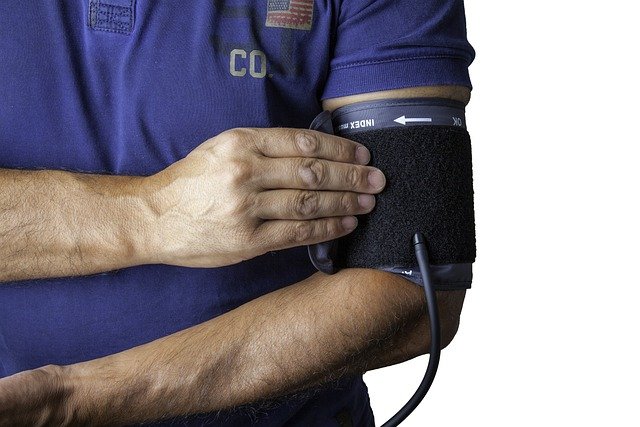What You Should Know Before Becoming a Sperm Donor
Sperm donation is a significant decision that can help individuals and couples struggling with fertility while providing compensation for donors. Understanding the comprehensive process, requirements, and long-term implications is essential before making this commitment. This guide covers everything from eligibility criteria to the donation process, ensuring you have the knowledge needed to make an informed decision about sperm donation.

What You Should Know Before Becoming a Sperm Donor
The decision to become a sperm donor involves numerous considerations beyond the initial application. Most sperm banks require donors to be between 18 and 39 years old, though some facilities accept donors up to age 44. Height requirements typically mandate donors be at least 5’7” tall, and educational backgrounds are often scrutinized, with many facilities preferring donors who have completed college or are currently enrolled.
Medical history plays a crucial role in eligibility. Donors undergo extensive screening for genetic disorders, sexually transmitted infections, and mental health conditions. Family medical history extending to grandparents and siblings is thoroughly reviewed. Additionally, lifestyle factors such as drug use, smoking, excessive alcohol consumption, and certain medications can disqualify potential donors.
The commitment extends far beyond single donations. Most programs require donors to visit facilities 1-3 times per week for 6-12 months, maintaining consistent schedules and adhering to strict lifestyle guidelines during the donation period.
A Guide to Sperm Donation Process and Eligibility
The sperm donation process begins with an initial application and phone screening, followed by comprehensive medical and psychological evaluations. Physical examinations include blood tests, urine analyses, and genetic screening panels testing for hundreds of inherited conditions. Psychological evaluations assess mental health history and emotional stability.
Eligibility requirements vary among facilities but generally include being a healthy male between specific age ranges with no significant genetic or medical conditions. Educational achievements, physical characteristics, and lifestyle choices significantly impact acceptance rates. Many programs maintain acceptance rates below 5% due to stringent requirements.
Once accepted, donors must abstain from sexual activity for 2-3 days before each donation to ensure optimal sperm concentration and quality. The donation process itself is straightforward, involving sample collection in private rooms at the facility. Each sample undergoes immediate analysis for sperm count, motility, and morphology.
Regular testing continues throughout the donation period, with monthly STI screenings and periodic health evaluations. Donors must immediately report any changes in health status, medication use, or lifestyle factors that could affect sample quality.
Everything You Need to Know About Donating Sperm
Compensation varies significantly based on location and facility quality. Donors can expect to earn between $50-150 per acceptable donation, with monthly earnings potentially reaching $1,000-1,500 for consistent donors. However, not all donations meet quality standards, and payment is typically provided only for samples that pass screening criteria.
Anonymous donation remains the standard practice, though some facilities offer known donor programs where recipients can access limited donor information. Many programs provide recipients with basic physical characteristics, educational background, medical history summaries, and sometimes audio interviews or childhood photos.
Long-term considerations include potential future contact from offspring, as many jurisdictions are moving toward allowing donor-conceived individuals to access donor identity information upon reaching adulthood. Some donors report emotional complexity regarding their biological contributions to families they may never meet.
| Sperm Bank | Compensation Per Donation | Monthly Potential | Key Requirements |
|---|---|---|---|
| California Cryobank | $100-150 | $1,200-1,800 | College degree, 5’9” minimum height |
| Fairfax Cryobank | $75-125 | $900-1,500 | Some college, 5’7” minimum height |
| Seattle Sperm Bank | $80-120 | $960-1,440 | College enrollment, extensive health screening |
| Xytex Corporation | $70-100 | $840-1,200 | High school diploma, clean medical history |
Prices, rates, or cost estimates mentioned in this article are based on the latest available information but may change over time. Independent research is advised before making financial decisions.
Legal implications vary by jurisdiction, but most donors waive parental rights and responsibilities through comprehensive legal agreements. However, laws continue evolving, particularly regarding donor anonymity and offspring access to genetic information. Some regions limit the number of families that can use donations from single donors to prevent inadvertent genetic relationships.
Record-keeping requirements mean that donation information remains stored indefinitely, even if donors later desire privacy. Medical histories may be updated throughout donors’ lifetimes to provide accurate genetic information for donor-conceived individuals and their families.
Planning Your Donation Journey
Success as a sperm donor requires careful planning and realistic expectations. The screening process can take 2-3 months before approval, during which candidates undergo multiple evaluations and waiting periods. Once accepted, maintaining the required donation schedule while balancing work, education, and personal commitments requires significant organization.
Physical and emotional preparation includes maintaining optimal health through proper nutrition, regular exercise, adequate sleep, and stress management. Avoiding activities that could affect sperm quality, such as hot tub use, excessive cycling, or tight clothing, becomes part of daily routine considerations.
Financial planning should account for the time investment required for donations, medical appointments, and facility visits. While compensation can be substantial, the commitment level and rejection rates for quality issues mean that projected earnings should be considered estimates rather than guarantees.
Becoming a sperm donor represents a unique opportunity to help others build families while earning compensation, but success requires meeting strict eligibility criteria and maintaining long-term commitments. Understanding the comprehensive requirements, processes, and implications ensures that potential donors can make informed decisions about this significant commitment. Thorough research of local facilities and careful consideration of personal circumstances will help determine whether sperm donation aligns with individual goals and capabilities.
This article is for informational purposes only and should not be considered medical advice. Please consult a qualified healthcare professional for personalized guidance and treatment.




